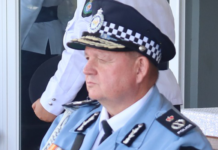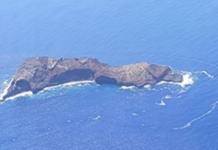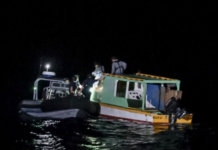Palau has become the latest Pacific Island nation to be approached by the United States after Tonga, Vanuatu, and Tuvalu were asked by President Donald Trump to consider accepting foreign nationals deported from the U.S.

Tonga, Vanuatu, and Tuvalu were reportedly given a set of “established benchmarks and requirements,” with the warning that failure to comply could result in travel bans to the United States.
Global media reports indicated that Palau, which receives substantial financial support from the United States under the Compact of Free Association, may find it difficult to reject Washington’s proposal to host deported foreign nationals.
Experts warn that accepting such an agreement could place significant strain on the small island nation’s limited resources and infrastructure
The move is part of a broader push by former President Donald Trump to accelerate deportations and reduce the number of undocumented immigrants within U.S. borders.
A letter from Palau’s President Surangel Whipps Jr, seen by The Guardian, indicates that the proposed agreement is still in draft form and subject to further negotiation. The letter also emphasizes that Palau would retain “full discretion” over whether to accept any individuals under the arrangement.
Doris Meissner, head of the U.S. Immigration Policy Program at the Migration Policy Institute and former commissioner of the U.S. Immigration and Naturalisation Service, noted that the draft agreement with Palau closely resembles similar requests made by the Trump administration to dozens of other countries for the resettlement of deported migrants.
“Because most of the countries are small, far from the US, and not familiar to most Americans, the reason for such actions is primarily to heighten fear within immigrant communities in the US of being sent to distant places where they have no family or other connections,” Meissner was quoted by the Guardian as saying.
The deal offers Palau no material benefit and warns that the tiny Pacific island would be agreeing under duress—driven by fear that rejecting the proposal could lead to negative consequences, Pacific analyst Camilla Pohle told The Guardian.
Tonga Warning Response
While Palau’s leadership is still considering the proposal, Tonga’s response to a similar warning has raised questions among analysts.
Some commenters expressed concern over why Prime Minister Eke’s office appeared to distance itself from the warning, leaving the matter to the Crown Prince.
Approximately 80,000 people in the United States identify as being of Tongan descent, according to national statistics.
The details of the U.S. warning to Tonga have yet to be disclosed, and Tongan authorities appear reluctant to discuss the matter publicly.
However, as previously reported by Kaniva News and other international media, the U.S. memo outlined benchmarks targeting Tonga and 35 other countries.
These included concerns that some nations lacked a competent or cooperative central government capable of producing reliable identity or civil documents, or were affected by widespread government fraud.
Other cited reasons included high numbers of citizens overstaying U.S. visas, the availability of citizenship through monetary investment without residency requirements, and claims of “antisemitic and anti-American activity in the United States” by individuals from those countries.
The memo also stated that a country’s willingness to accept third-country nationals deported from the U.S., or to enter a “safe third country” agreement, could help mitigate these concerns.







